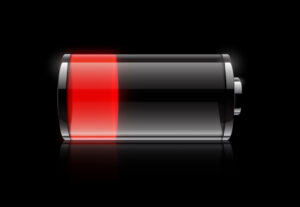 Tired all the time? Not enough energy to perform your daily activities? Looking to boost your energy levels? You may lack the energy you should have due to poor dietary and lifestyle habits. Poor dietary habits from too many carbohydrates, bad fats, and possibly lack of water could be the reason for your low energy. Hormonal issues are usually present when energy is low too. Most common is a low adrenal output of necessary steroid hormones. When the adrenal glands have been under too much stress for too long, cortisol levels drop and adrenal fatigue sets in. This may make you head for some caffeine – or increase your morning coffee ritual.
Tired all the time? Not enough energy to perform your daily activities? Looking to boost your energy levels? You may lack the energy you should have due to poor dietary and lifestyle habits. Poor dietary habits from too many carbohydrates, bad fats, and possibly lack of water could be the reason for your low energy. Hormonal issues are usually present when energy is low too. Most common is a low adrenal output of necessary steroid hormones. When the adrenal glands have been under too much stress for too long, cortisol levels drop and adrenal fatigue sets in. This may make you head for some caffeine – or increase your morning coffee ritual.
The time you are tired is also noteworthy. Characteristic of an adrenal gland issue is lower energy as the day progresses. A thyroid gland issue usually manifests as less energy in the morning and more as the day goes on. Though you can have both issues as all hormones are so intricately influenced by one another. Becoming tired after a meal sometimes means you’ve got a food allergy to something you just ate or you’re eating too many carbohydrates. Check out the information on allergies and carbohydrate intolerance.
Energy is made through your Krebs cycle by producing ATP. A deficiency in one or more of the nutrients that make this cycle “turn” to produce energy (ATP) can result in fatigue. Some of those nutrients are vitamin B6, magnesium, pantothenic acid, vitamin C, biotin, manganese, iron, niacinamide, and riboflavin.
Fatigue from exercising, especially long bouts, can sometimes be due to an ammonia toxicity from biochemical reactions not working optimally. This type of fatigue doesn’t really make you tired, but it is more like you just don’t feel like doing anything. Sometimes vitamin B6, magnesium, vitamin B5, phosphorus, and molybdenum help. This is extremely common in an athlete who has just run an endurance event such as a marathon or long triathlon.
Fatigue from exercise can be from exercising too hard. This will occur if you are exercising anaerobically rather than aerobically most of the time. Check out the Natural Fitness section on the DRG site for more information on this topic.
Fatigue can also be due to an iron deficiency or another nutrient that makes up the red blood cells, such as vitamin B6, copper (too much or too little), or molybdenum. Have a CBC (Complete Blood Count) w/differential performed to check this, along with a ferritin test to check for stored iron. Your ferritin level should ideally be 50-150ng/mL.
If your red blood cells are too big, this can also cause fatigue. This is known as megablastic anemia. This is typically due to a folic acid and/or B12 deficiency. This becomes relevant when a CBC blood test shows the MCV to be greater than 91.0. Considering that proper gastric function is needed to absorb B12 and 40% of individuals cannot properly metabolize folic acid into its active 5-methyl-tetrahydrofolate form (5-MTHF), you can understand how common this problem may be.
Fatigue can also be due to a toxicity, such as a food allergy, or a mold/fungus/yeast infection. There is a fine line between being tired and toxic. Too much sugar can not only cause fatigue from the insulin surge you’ll get after consuming it, but if there is a fungal infection then you’ll feed that organism, creating more toxicity, and creating more fatigue.
Fatigue can also be due to a fatty acid metabolism issue. A diet containing hydrogenated fats, deficiency of omega 3 and 6 fats, and a possible deficiency in magnesium, zinc, vitamin B6, or niacin can cause you to be unable to process fats properly.
So you can see the many reasons for fatigue – hormonal imbalances, red blood cell issues, metabolism issues, biochemical inadequacies, improper diet and exercise, and even more reasons. If reading this section made you fatigued, then you’re probably more tired than you think!




Leave a Reply